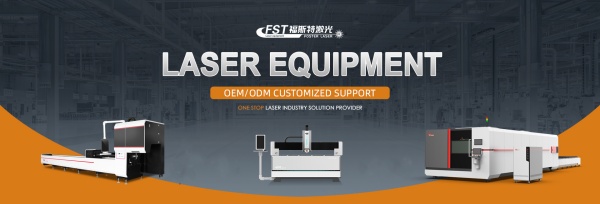Fiber laser cutting machines have revolutionized the processing of various materials in the industry, offering precision, efficiency, and versatility. In this article, we will explore in detail the different materials that can be processed with fiber laser cutting machines. We will not only cover the most commonly used metals but also delve into more specialized materials that benefit from fiber laser cutting.
Stainless Steel
Fiber laser cutting machines are highly suitable for cutting stainless steel due to their high precision and ability to create clean, sharp edges without the need for secondary processing. Fiber lasers minimize the heat-affected zone, preserving the structural integrity of the material and ensuring a smooth, polished surface. This characteristic is particularly advantageous in industries that prioritize aesthetics and cleanliness, such as food processing, medical devices, and architectural applications.
Carbon Steel
Carbon steel is one of the most commonly cut materials using fiber laser cutting technology. Due to its strength and versatility, it is widely used in construction, automotive, and heavy machinery industries. Fiber laser cutting machines can typically handle carbon steel with thicknesses of up to 30 millimeters in batch processing, achieving optimal performance. These machines can cut carbon steel with extremely high precision, resulting in smooth, burr-free edges.
Aluminum and Aluminum Alloys
Aluminum is a highly reflective material that has traditionally posed challenges for laser cutting. However, fiber laser cutting machines have overcome these issues and can now cut aluminum and its alloys with high precision. Industries such as aerospace and automotive greatly benefit from the precision and speed of fiber laser cutting when processing lightweight aluminum components.
Copper
Copper is another reflective metal that fiber lasers handle well due to their shorter wavelength and high energy density. Cutting copper with a fiber laser cutting machine achieves precise, smooth cuts without bending the material. Fiber lasers are particularly suited for cutting intricate patterns in copper, making them ideal for the electronics industry, where copper is used in circuit boards and other electrical components.
Brass
Brass, an alloy of copper and zinc, is widely used in decorative applications, plumbing fittings, and mechanical components. Fiber laser cutting machines are well-suited for processing brass because they provide clean, accurate cuts without overheating the material. The precision of fiber lasers ensures that brass components maintain their aesthetic appeal, making them ideal for architectural elements, musical instruments, and intricate mechanical parts.
Titanium and Titanium Alloys
Titanium is known for its high strength, light weight, and corrosion resistance, making it a valuable material in industries such as aerospace, medical devices, and chemical processing. Fiber laser cutting machines excel at cutting titanium due to their ability to perform precise cuts with minimal thermal distortion. Fiber lasers can cut titanium with extremely high precision while maintaining the structural integrity of the material, which is particularly important in industries that require lightweight and strong components.
Galvanized Steel
Galvanized steel is coated with a layer of zinc to prevent corrosion and is commonly used in construction and automotive industries. Fiber lasers are an excellent choice for cutting galvanized steel because they can cut both the steel and the zinc coating without damaging the material. The precision of fiber laser cutting machines ensures that the galvanized coating remains intact along the cut edges, preserving the material’s corrosion resistance.
Although fiber laser cutting machines are highly versatile, they are not suitable for cutting non-metal materials such as wood, plastics, or ceramics. These materials require different types of lasers, such as CO2 laser cutters, which are designed for effective cutting of non-metallic substances.
Fiber laser cutting machines are widely used and can effectively cut a variety of metals and alloys. From carbon steel and stainless steel to aluminum, copper, brass, and other specialized alloys, fiber lasers offer high precision, speed, and efficiency. While their use is limited to metals, their role in modern manufacturing is undeniable. As industries continue to evolve with increasing demands for precision and efficiency, fiber laser cutting machines will remain at the forefront of innovation, enabling businesses to push the boundaries of metal cutting.
Post time: Sep-20-2024





